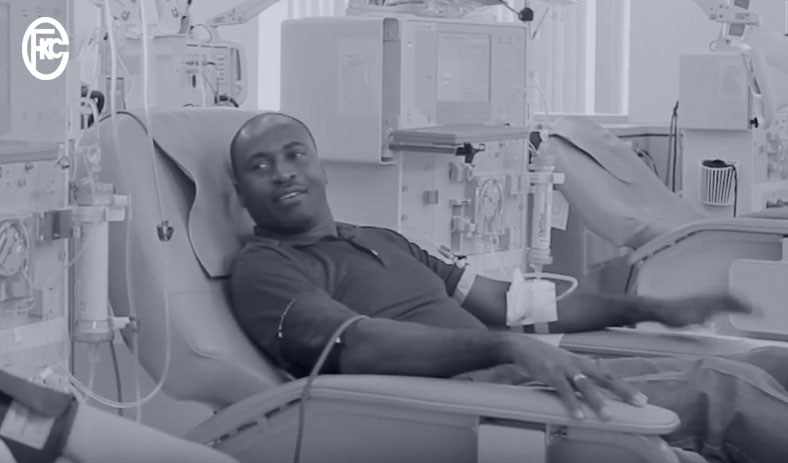
Human beings have two kidneys which are bean-shaped organs, about the size of a fist. They are placed on either side of the spine below the rib cage.
Every single minute, healthy kidneys filter about a half cup of blood, eliminating wastes and excess water to produce urine.
Kidneys also help filter out acid created by the body's cells and keep a healthy balance of water, salts, and minerals in your blood, such as sodium, calcium, phosphorus, and potassium.
Nerves, muscles, and other tissues in your body may not function properly if this equilibrium is not well maintained.

Dialysis is a procedure to remove waste products and excess fluid from the blood when the kidneys stop working properly. The blood is diverted to an artificial kidney (hemodialyzer) which eliminates waste and extra fluid from the blood. With the help of a dialysis machine, the filtered blood is then returned to the body. The whole process of Dialysis treatment can take up to 3 to 4 hrs.
Dialysis is not required in the early stages of chronic kidney disease (CKD). Chronic renal disease can progress over several years. However, if your kidneys fail, you will require dialysis or a kidney transplant to survive.
When your kidney function declines to 15% or less — or if you have severe kidney disease symptoms including shortness of breath, exhaustion, muscle cramps, nausea, or vomiting — you would need to start dialysis. Based on the findings of blood tests that determine how much kidney function you have left and your symptoms, your doctor will help you decide when to start dialysis.
When your doctor feels it's necessary, private insurance usually covers kidney failure treatment. If you don't have commercial insurance, government or state-funded healthcare programs such as Medicare or Medicaid may be able to help.
Dialysis can be performed in a hospital, at a non-hospital dialysis facility, or home. Based on your medical condition and preferences, you and your doctor will decide which location is ideal.
Since chronic kidney failure frequently develops gradually, patients may not realize how ill they are feeling until they begin dialysis and begin to feel considerably better.
When your kidney disease reaches Stage 4 (severe, with a glomerular filtration rate, or GFR, less than 30 mL/min), it's critical to start preparing for dialysis or a transplant as soon as possible. Be informed about the types of dialysis and transplant options before making a decision.
There are a good number of dialysis centers near Disney World in Florida. If you are looking for a safe place to start dialysis, Central Florida Kidney Center is a great option to begin with. Our dialysis center guides you thoroughly with the entire procedure and helps treat the patients with utmost care. CKFC is here to help you!